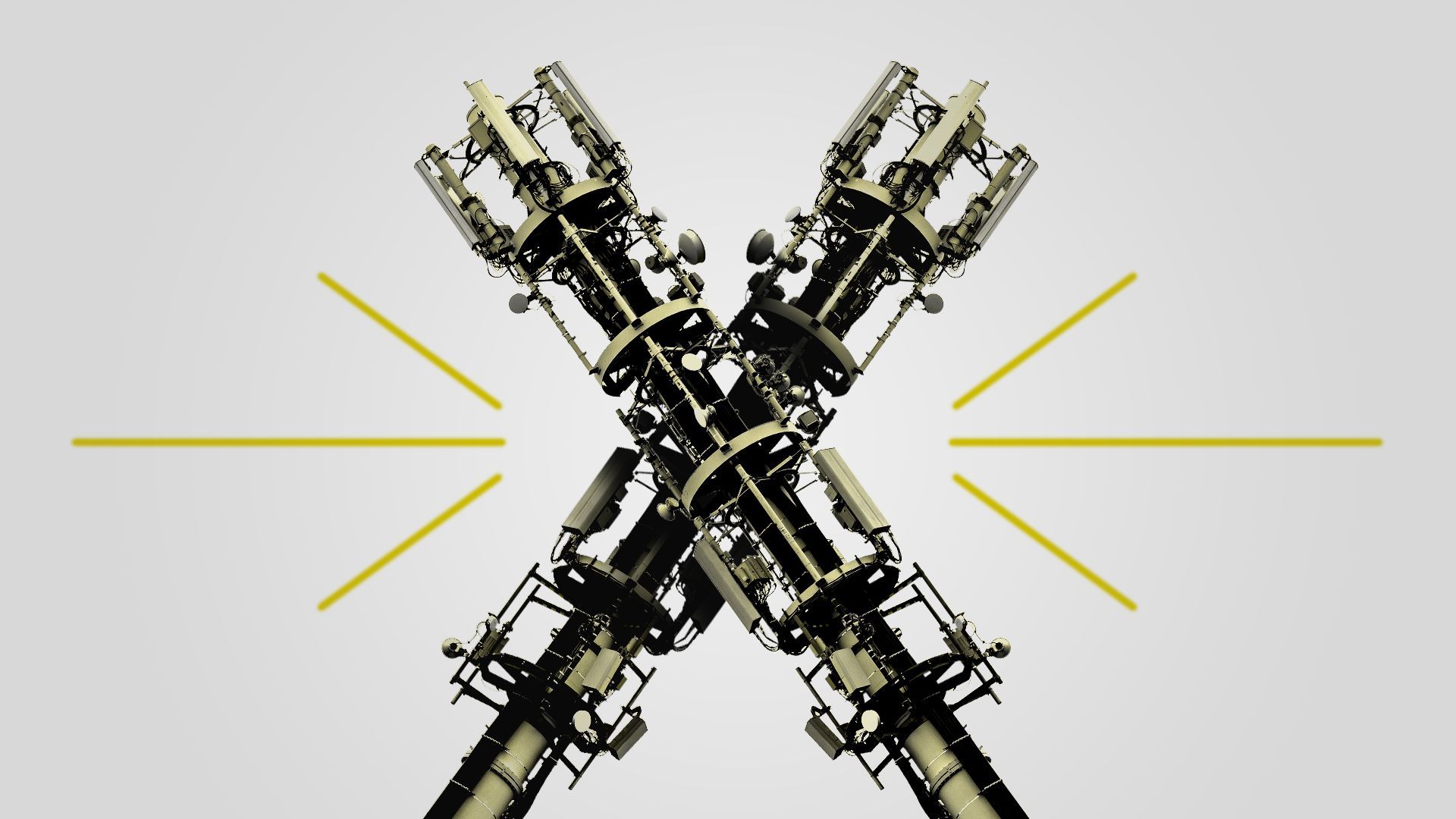5G hype wars heat up
Add Axios as your preferred source to
see more of our stories on Google.

Illustration: Annelise Capossela/Axios
Verizon tapped actor Jim Carrey while T-Mobile leaned on Dolly Parton and Miley Cyrus to sell 5G during the Super Bowl as wireless companies spend big to convince consumers to upgrade.
Why it matters: The 5G marketing blitz has also led to a surge in company-on-company complaints over misleading advertising.
The big picture: The big four carriers may now be the big three, with T-Mobile having absorbed Sprint, but they're still spending big on star power as they push new home 5G service meant to woo people away from cable.
- Carrey reprised his role from the movie "The Cable Guy" to promote Verizon's new in-home 5G service.
- Parton and Cyrus highlighted T-Mobile's 5G phone service while "Scrubs" actors Zach Braff and Donald Faison sang about the company's in-home offering.
Yes, but: 5G service has yet to really resonate with consumers, said Roger Entner, founder of Recon Analytics.
- Entner notes that out of monthly surveys of 3,000 consumers, 5G service ranks 5th out of 9 categories for the most important reason to pick a new wireless provider, and 9th out of 9 as a reason to leave a provider.
- "Just saying my G is bigger than your G — consumers don’t give a hoot," Entner told Axios. "And that’s because we really haven’t seen these must-have applications that are reliant on 5G."
The intrigue: Current consumer apathy has not stopped wireless and cable companies from accusing each other of making misleading 5G claims before the BBB National Programs' National Advertising Division, a self-regulatory body for businesses.
- Disputes over 5G advertising jumped more than 40% since 2019, Laura Brett, the vice president of the National Advertising Division, told Axios.
- Most recently, NAD urged Comcast to stop its "Unlimited 5G” and “best price” claims after T-Mobile challenged the advertising.
- In November, T-Mobile lost challenges from both AT&T and Verizon against its claims about its network reliability. T-Mobile said at the time it would appeal.
Between the lines: This type of industry in-fighting over a new product is typical in telecom, which has also battled over previous new service launches, such as 4G LTE.
What they're saying: "When one of these telecom companies introduces a new claim into the marketplace, they know their competitors are watching," Brett told Axios. "If misleading claims are out there, this is a forum for competitors to challenge those claims and for us to issue modifications or changes that ultimately benefit consumers."
- The recommendations from NAD are voluntary, but the organization can forward cases to the Federal Trade Commission, which polices deceptive advertising.
- Brett declined to say whether the organization has received complaints about the Super Bowl ads (although T-Mobile faced a complaint from AT&T about its 5G ads from the 2021 Super Bowl).
The bottom line: The companies have invested billions in 5G service. "The stakes are high and the knives come out," Entner said.
